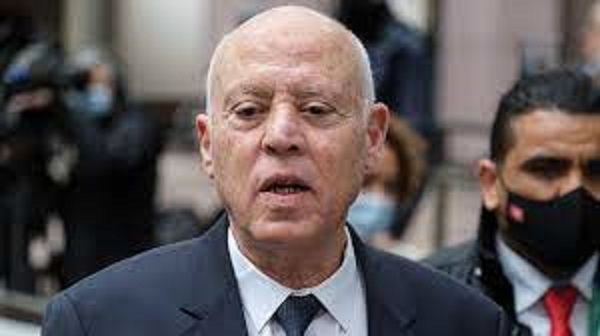Black Tunisians are experiencing more instances of racism following the country’s president’s openly criticising migrants from sub-Saharan Africa.
In February, President Kais Saied ordered “urgent measures” against sub-Saharan migrants, accusing them of a “criminal plot” to change the country’s demographics and cultural identity.
He went on to say that immigration came from “a desire to make Tunisia just another African country and not a member of the Arab and Islamic world”.
There has since been a rise in violence against black African migrants, according to Human Rights Watch, and the president’s statement has only made the situation worse for black Tunisians, who make up between 10-15% of the Tunisian population, according to official figures.
This number includes some descendants of sub-Saharan African slaves – The slave trade, which involved the selling of black Africans, was abolished in Tunisia in 1846 but its legacy lives on.
One of such is Ms Ksiksi who said she is made to feel invisible: “Sometimes I speak in Arabic and they will answer in French because they don’t want me to be a part of Tunisia.”

Arabic is Tunisia’s official language, but Ms Ksiksi says she is often rejected when she speaks it, because other people do not want to acknowledge a sense of kinship with her.
Although French is associated with privilege and education, it is also the language of “outsiders”, and so when people use it to reply to her, they are making it clear they do not think she is Tunisian.
Ms Ksiksi, who is a co-founder of the Voices of Black Tunisian Women collective, wants to challenge the misconception that black Tunisians do not exist.
“I feel like I belong to Tunisia even though it’s so violent towards me and people who look like me,” the 31-year-old says. “They treat us not as Tunisians and treat themselves as not Africans.”
She argues that despite independence from France in 1956, Tunisians want to be seen as belonging to Europe, and the colonial viewpoint that black Tunisians are “dusty and unclean” lingers.
“That’s why we have a huge identity crisis in Tunisia. We had independence on paper, but the colonial politics are still here.”
A lack of black representation in places of social and political power, she believes, reinforces the idea that there are no black Tunisian citizens.
The president’s statements about sub-Saharan migrants were a backlash against the Arab Spring and what it represented for black Tunisians.
Following the Arab spring protest in 2011, the new democratic government that came to power through the ballot created an opportunity for black Tunisians to be more visible in society. Black Tunisians started demanding more equal treatment.
In 2018, Tunisia passed a landmark law to criminalise racial discrimination, in particular anti-black racism against black Tunisians and black African migrants. It became the first country in the Arab region to make discrimination specifically on racial grounds a criminal offence.
Both Ms Ksiksi and Ms Mzioudet say that despite these laws, the government has allowed the discrimination and inequality faced by black Tunisians to flourish.
In February, hundreds of people took to the streets of Tunis in support of black African migrants and black Tunisians, a positive sign that there is hope that the younger generation wants to see change, says Ms Mzioudet.
“I was brought to tears to see one of the largest marches in downtown Tunis that was mostly made up of non-black Tunisians who were saying that black lives do matter,” she says.
“And that it’s not a black issue but a human rights issue.”

